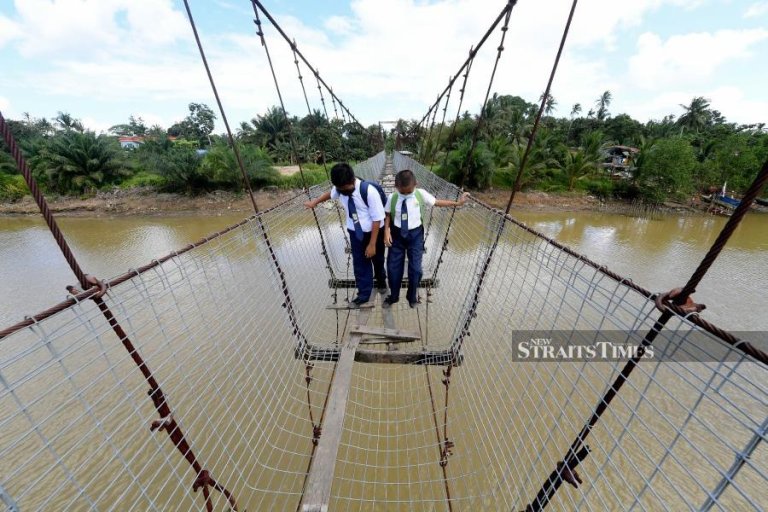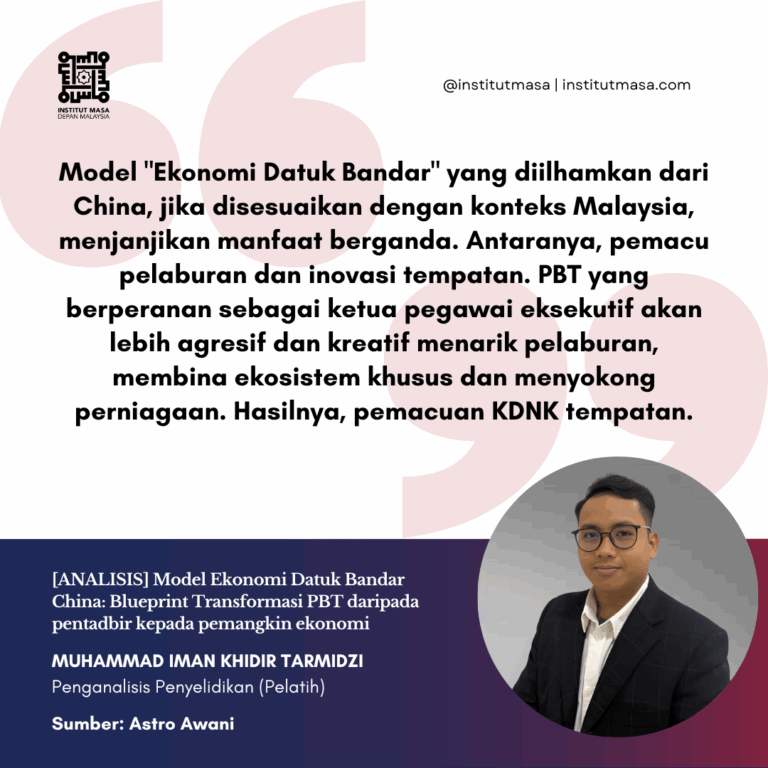Recently a picture of two boys crossing a dilapidated, rickety suspension bridge en route to their school in Kampung Nelayan, Sandakan, Sabah, went viral.
This, undoubtedly, underpins the need for greater investment in equitable education to transform lives and unlock doors to opportunities and possibilities.
We must recognise that every child is unique.
We must empower them to learn, grow and thrive as they deserve that opportunity to lifelong learning.
The International Day of Education, celebrated yearly on Jan 24, symbolises the global commitment to appreciating the values of education, in reducing inequality and poverty while strengthening social mobility.
This year’s theme, “Changing Course, Transforming Education”, captures the agenda of inclusiveness that transcends boundaries, one that will leave no one behind.
As part of Institut Masa Depan Malaysia’s outreach initiative, my colleagues and I visited the Palauh (Bajau Laut) community in Semporna, Sabah, last month. It showed me these children’s potential and raw talents.
Their resiliency and grit are second to none. The visit serves as a reminder of the role that everybody can play to make a world of difference to eradicate poverty through education, a fundamental right as enshrined in Article 26 of the Universal Declaration of Human Rights and the United Nation’s 4th Sustainable Development Goals (SDGs).
The Orang Asli Education Transformation programme, for example, aims to uplift the marginalised and underrepresented communities with special educational needs through the Malaysia Education Blueprint 2013-2025.
The blueprint has been described as the most comprehensive and biggest manifestation of government transformation in getting the best returns in human capital to drive all national development aspirations.
As our nation gears towards recovery from Covid-19, it serves as an opportune time for us to take a step back and to re-imagine the education industry in the post-pandemic era.
In so doing, all stakeholders must be prepared to make bold and calculated changes — solution-centric and far-sighted policy reforms that could help empower and nurture a generation of students to be future-proof.
The bedrock of every child’s success begins with the shaping of values and character.
With a structured early childhood development programme, learning experience can be customised to unleash the potential in them.
In the shift away from examinations, classroom-based assessments serve as tools that cater to transitional phase based on the students’ pace of learning, particularly between Year Six and secondary school following the abolishment of Ujian Pencapaian Sekolah Rendah.
Critical thinking skills should continue to be given emphasis to develop students’ analytical and creative thinking skills beyond their academic abilities.
Teachers, too, should be afforded freedom to inject creativity into their teaching methods by embracing digital transformation.
For instance, interactive in-class virtual reality in science experiments provide exposure to ignite students’ curiosity with authentic learning experience.
Samuel Isaiah, or Cikgu Sam, rose to the occasion during the pandemic when he initiated a makeshift school to bring the classroom to his students in an indigenous settlement and developed a bond with them, leading to his nomination for the Global Teacher Prize.
Integrated data sharing via big data analytics will monitor students’ wellbeing, with the support of welfare officers on the psychosocial aspect and mentoring programmes to put a stop to dropouts.
Students should be given opportunities to discover their passions through course options as they progress through their phases of life.
Career guidance can identify pathways that fit their strengths and interests before venturing into fields such as creative arts, school of politics and entre-preneurship.
Future graduates must be equipped with a broader set of soft skills to boost their prospects of job matching and employability through reskilling and upskilling programmes, and Technical and Vocational Education and Training.
Youths can flourish to become future leaders in spearheading the nation’s development agenda towards achieving the aspirations of Shared Prosperity Vision 2030 and SDGs.
It is time for all parties to seize the opportunity and galvanise efforts to bridge the education equity gap in the National Recovery Plan 2.0.
The future of our next generation is our shared responsibility and it begins today
The writer is a research analyst at Institut Masa Depan Malaysia
The views expressed in this article are the author’s own and do not necessarily reflect those of the New Straits Times
Date: 24 January 2022
Image source: https://assets.nst.com.my/images/articles/sibugas_1642953636.jpg
Source: New Straits Times – https://www.nst.com.my/opinion/columnists/2022/01/765514/bajau-visit-reminds-us-we-can-eradicate-poverty-through-education




